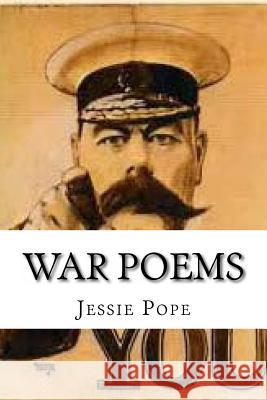War Poems » książka
War Poems
ISBN-13: 9781500363161 / Angielski / Miękka / 2014 / 44 str.
Looking back from the perspective of 2014, it is easy to dismiss Jessie Pope's versified jingoism as a glib call to patriotism and as a facile celebration of the stereotypical British character: brave, stoical and essentially benevolent - reluctantly going to war to teach Germany a lesson. However, insofar as they capture the public mood at the start of the First World War - a mood they helped to create, of course - they are valuable documents. Her derogatory comments against Germany and Germans in general were part and parcel of the propaganda of the day - produced in great quantities by the popular press. Similarly, her assumptions about the inherent superiority of the British race - while ridiculous - have to be seen in the context of Great Britain's Empire, the largest the world has ever seen. Moreover, reading Jessie Pope's poems provides us with a context in which to read the poetry of Owen, Sassoon and Rosenberg. Indeed, an early draft of Owen's "Dulce et Decorum Est" was subtitled (in Owen's own handwriting) "To a Certain Poetess" there is a consensus that Owen is referring to Jessie Pope. When we read Pope's poems, we can understand the vehemence of the later war poetry, as it is partly a reaction against early propaganda verse like this.
Zawartość książki może nie spełniać oczekiwań – reklamacje nie obejmują treści, która mogła nie być redakcyjnie ani merytorycznie opracowana.











